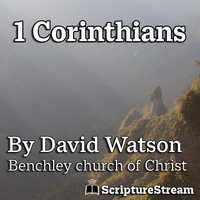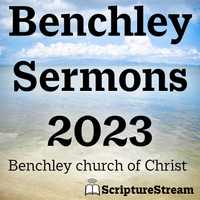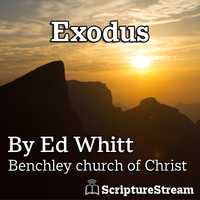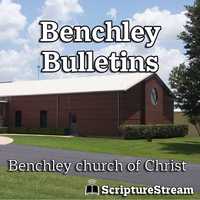David and Solomon reigned over a United Kingdom. 1 Kings 11:43 tells of Solomon’s death. Chapter 12 tells of the foolishness of his son Rehoboam as he began to reign. Because he was concerned about self instead of his people, ten tribes rebelled, and the kingdom was divided, and the northern kingdom had its beginning. God called Jeroboam to rule over the northern kingdom and told him He would bless him if he would honor him as David did. But Rehoboam cared more for self than for the people of God. And in an effort to keep the people from returning to Rehoboam, he built altars at Bethel and Dan and told the people it was too much for them to go to Jerusalem to worship (1 Kings 12:26-29). This was sin (1 Kings 12:30). In chapter 13 God sent a prophet from Judah to cry against the altar at Bethel. It would be helpful to you to read chapter 13 for lessons we learn from this.
God’s commands are plain and understandable
He was to cry against the altar. He was to eat no bread or drink any water. He was to return another way. These commands are not hard to understand. It is still so. “If any man will do his will, he shall know of the doctrine, whether it be of God, or whether I speak of myself.” (John 7:17). “Wherefore be ye not unwise, but understanding what the will of the Lord is.” If we will be wise and will to do His will, we can know His will. One can understand what God requires. One can believe what He requires. One can do what He requires. And one can be what He requires.
All of God’s commands are to be respected
What a small thing that he eat no bread or drink no water in Samaria. He could see no harm in it. But he disobeyed God. If God said it that makes it important. There is no room for rationalization where God has spoken! His trouble was not in the ability to understand and obey. It was a matter of faith. It is still so. When one rejects baptism for remission of sins his trouble is not baptism; it is a matter of faith. Just so as relates to attending, giving, being a brother’s keeper, keeping self pure, divorce and remarriage and in everything.
The effects of believing a lie
Because the old man was a prophet, he believed him instead of God. He thought God had given the old prophet latter revelation. But he knew he was not doing what God had told him to do. Thus, we see the effects of believing and following man even if he claims to be a prophet. We must be like the Bereans. “They received the word with all readiness of mind and searched the scriptures daily, whether these things were so.” (Acts 17:11). We must never believe one who claims to speak for God unless his words agree with God’s.
Sin cannot be successfully committed
As he sowed, so he reaped. His sin found him out. “You have sinned against the Lord, and be sure your sin will be found out.” (Numbers 32:23). It is still so. “Do not be deceived, God is not mocked; for whatever a man sows, that he will also reap. For he who sows to his flesh will of the flesh reap corruption, but he who sows to the Spirit will of the Spirit reap everlasting life.” (Galatians 6:7-8).
Disobedience is fatal
The lion slew him. It is still so. “Seeing it is a righteous thing with God to recompense tribulation to them that trouble you; and to you who are troubled rest with us, when the Lord shall be revealed from heaven with His mighty angels, in flaming fire taking vengeance on them that know God, and that obey not the gospel of our Lord Jesus Christ. Who shall be punished with everlasting destruction from the presence of the Lord, and from the glory of His power.” (2 Thessalonians 1:6-9) “Who will render to every man according to his deeds. to them who by patience in good work are seeking for glory, and honor, and incorruptibility, everlasting life. But to those who disobey the truth out of self-interest, but obey unrighteousness, it will be anger and wrath, tribulation and anguish upon every soul of man who has worked out evil; of the Jew first, and also of the Greek.” (Romans 6:6-9). “Therefore whoever hears these sayings of Mine, and does them, I will liken him to a wise man who built his house on a rock. And the rain came down, and the floods came, and the winds blew and beat on that house. And it did not fall, for it was founded on a rock. And everyone who hears these sayings of Mine and does not do them shall be compared to a foolish man who built his house on the sand and the rain came down, and the floods came, and the wind blew and beat on that house, and it fell, and great was its fall.” (Matthew 7:24-27).
From this that was written aforetime we learn that we must believe and respect all of God’s commands. We learn that to do otherwise, even if a “prophet” says so, it is to be refused. How do you treat God’s commands? Sinner, He tells you to believe, repent and be baptized in Jesus‘ name for the remission of sins. Will you believe and respect His commands, or will you rationalize around them? Brother, do you really put Him first in your life? Are you really trying to pattern your life after Jesus? Or do you rationalize around His commands when you want to do otherwise?
Let us be wise and learn from the disobedient prophet.
Jesse Jenkins



